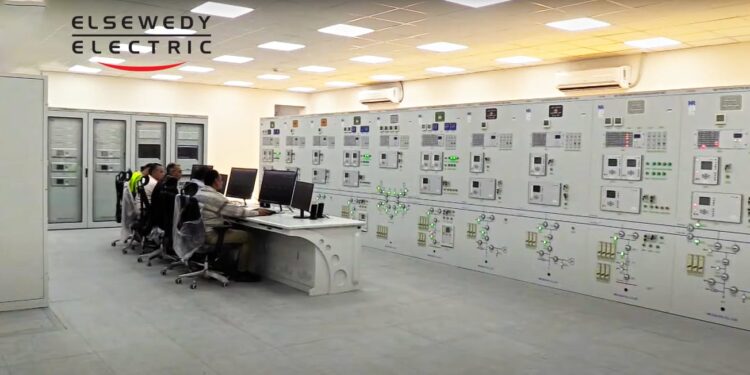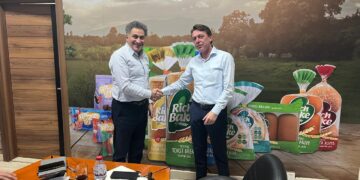ELSEWEDY ELECTRIC, a leading company in providing integrated energy and infrastructure solutions in Africa and the Middle East, has announced the implementation of a 40 MVA Gas-Insulated Substation (GIS) for the New El-Mahalla Spinning and Weaving Factory 1, owned by the Cotton & Textile Industries Holding Co.
This project is a key component of Egypt’s national initiative to modernize and expand the spinning mills in El-Mahalla El-Kubra, aiming to strengthen the domestic industry and boost exports.
ELSEWEDY ELECTRIC is responsible for all aspects of the Gas-Insulated Substation (GIS), which includes three 40 MVA transformers. The substation operates to convert voltage from 66 kV to 22 kV. The scope of work includes the design, manufacturing, and testing of the substation, connecting it to the factory, and overseeing the installation and commissioning of the three transformers on-site
Commenting on this occasion, Eng. Amr Ali, Sales Director for Transformers in Egypt at Elsewedy Electric, stated: “We are proud to contribute to this monumental project, which marks an important step towards modernizing Egypt’s spinning and weaving sector.”
“This will enhance the production capacity of Factory 1, a massive industrial hub and the largest spinning and weaving plant in the world. It also supports local manufacturing and strengthens the national economy,” he added.
He added, “We are committed to maintaining the highest standards of quality and innovation in the field of integrated energy and infrastructure solutions, including the construction of various substations. The Gas-Insulated Substation (GIS) is particularly notable for its ability to save up to 90% of space compared to air-insulated distribution stations, making it ideal for both indoor and outdoor applications.”
The world’s largest spinning mill, Factory 1, is being built on an area of 62,500 square meters at Misr Spinning and Weaving Company in El-Mahalla El-Kubra. It will accommodate 182,000 spinning spindles, with production set to begin as soon as the machines, which are arriving sequentially, are installed. The factory is expected to produce approximately 30 tons of yarn per day.


















